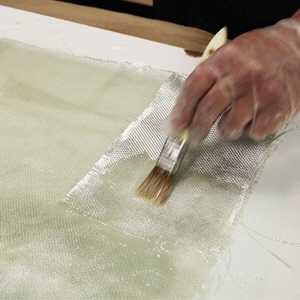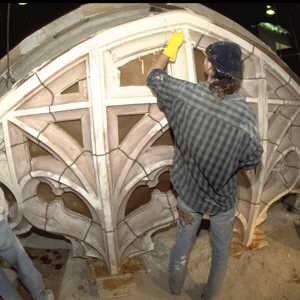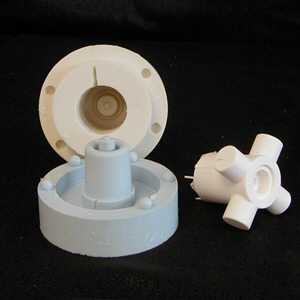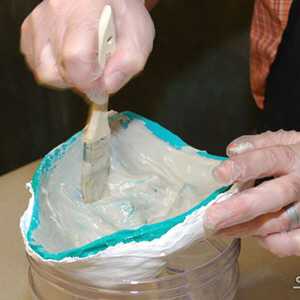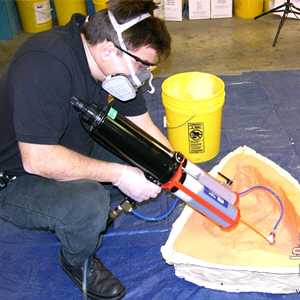- Inicio
- 3D Printers and accessoires
- Moldes y Réplicas
- Siliconas de Estaño
- Siliconas de Platino
- Gomas de Poliuretano
- Alginato
- resinas de Poliuretano
- Espuma de Poliuretano
- Epoxi
- Látex
- Mask Making Latex
- Mold Making Latex
- FormX Elastica
- Monster Makers Kit de Espuma de Látex
- Monstermakers Mask making latex RD-407
- Monstermakers additives & Components
- Holden's HX-200™ Coating/Dipping Latex
- Holden's Brushable HX- Body Latex™
- Holden's Mold Making Latex HX-80™
- Holden's Mold Making Latex High Viscosity HX-974™
- Holden's Mask Making Latex - Pourable HX-407™
- Holden's Mask Making Latex - Brushable HX-807™
- Holden's Cosmetic Latex™
- Holden's Frisket Mask Latex
- Holden's HX-Injection Medium™
- Latex Accessories
- Latex Pigments
- Latex Paint
- Latex Thickener
- Yeso y Hormigón
- Poliester
- AcrylCast
- Fundición Prince August
- Modelar
- Jesmonite sistema acrílico
- Buddy Rhodes Sistema de Hormigón
- Sellar y Despegar
- Pigmentos
- Jesmonite Pigments
- Pure Pigments
- Ultra Fine Pigments
- Silc Pig™ pigmentos
- Glow Worm™ Pigmentos
- Cryptolyte™
- Silc Pig™ Eléctrico
- SilTone
- SilTone Kits
- FuseFX pigmentos de silicone
- Silicone Coloring System S.A.M
- Key-Pigments Silicone Pigments
- Flock fibras
- Latex Pigments
- Polyester Pigmentos
- UVO Pigmentos resistentes al UV
- Tintes SO-Strong™
- Tintes Ignite™
- Real Metal Powders
- Faux Metal Powders
- Cast Magic™ Polvos
- Pinturas
- Rellenos & Refinamiento
- Aditivos
- Disolventes y diluyentes
- Adhesivos
- Herramientas
- Equipos
- Maquillaje
- máscara de goma pintura de grasa
- Skin Illustrator Paletas
- Skin Illustrator líquido
- Fleshtone 60ml
- Fleshtone 120ml
- Dark Fleshtone 60ml
- Dark Fleshtone 120ml
- FX 60ml
- FX 120ml
- FX 240ml
- Complexion 60ml
- Complexion 120ml
- Alchemy 60ml
- Alchemy 120ml
- Grunge 60ml
- Grunge 120ml
- Grunge 240ml
- Mardi Gras 60ml
- Mardi Gras 120ml
- Necromania 60ml
- Mekash Colors 60ml
- Clear Gloss 60ml & 120ml
- Glo-Worm 60ml & 120ml
- Tattoo Classic 60ml & 120ml
- Sunburn
- Alphabetical all
- Skin Illustrator Individual
- Skin Illustrator Glazing Gels
- Skin Illustrator Concentrates
- Skin Illustrator Glazing Spray
- Skin Illustrator Mouth FX
- Allied FX (Blue Bird)
- RipperFX Palettes
- Stacolor Paletas de Maquillaje
- PAX - Pinturas Thom Suprenant
- Tattoo
- MaqPro Farde Palettes
- MaqPro Make-Up Mixer
- MaqPro Creamy
- Pinceles Maquillaje
- MaqPro Bruise Gel
- Old Age Stipple
- Sponges and Applicators
- Stamps & Molds
- Head Armatures
- FormX Tools
- Kryolan maquillaje
- efectos especiales
- material protésico
- Ayuda para elegir
- FormX Academy
- Marcas
- Literature
Ecoflex ™ 00-10 /0,91 kg
Eco-Flex 0010 / 0,9kg.

Los cauchos Ecoflex™ son siliconas catalizadas con platino, versátiles y fáciles de usar.
Los cauchos Ecoflex™ se mezclan en una proporción 1A:1B por peso o volumen y curan a temperatura ambiente con un encogimiento insignificante. La baja viscosidad asegura una mezcla y desaireado fáciles. El caucho curado es muy suave, muy fuerte y muy elástico, se puede estirar muchas veces su tamaño original sin desgarrarse y vuelve a su forma original sin deformarse.
Características
Los cauchos Ecoflex™ son translúcidos de color blanco agua y se pueden pigmentar con los pigmentos Silc Pig™ para crear una variedad de efectos de color. También puedes añadir Silicone Thinner™ de Smooth-On para reducir aún más la viscosidad. El espesante de silicona THI-VEX™ se puede agregar a los siliconas Ecoflex™ para aplicaciones en las que se desee aplicar con brocha.
Los cauchos Ecoflex™ son adecuados para una variedad de aplicaciones, como la fabricación de prótesis, amortiguación para órtesis y aplicaciones de efectos especiales (especialmente en animatrónica donde se requieren movimientos repetitivos).
Nota: Ecoflex™ 00-10 cura con una superficie "pegajosa".
Instructions
Safety – Use in a properly ventilated area (“room size” ventilation). Wear safety glasses, long sleeves and rubber gloves to minimize contamination risk. Wear vinyl gloves only. Latex gloves will inhibit the cure of the rubber. Store and use material at room temperature 23°C. Warmer temperatures will drastically reduce working time and cure time. Storing material at warmer temperatures will also reduce the usable shelf life of unused material. These products have a limited shelf life and should be used as soon as possible.
Cure Inhibition – Addition-cure silicone rubber may be inhibited by certain contaminants in or on the pattern to be molded resulting in tackiness at the pattern interface or a total lack of cure throughout the mold. Latex, tin-cure silicone, sulfur clays, certain wood surfaces, newly cast polyester, epoxy or urethane rubber may cause inhibition. If compatibility between the rubber and the surface is a concern, a small-scale test is recommended. Apply a small amount of rubber onto a non-critical area of the pattern. Inhibition has occurred if the rubber is gummy or uncured after the recommended cure time has passed.
Because no two applications are quite the same, a small test application to determine suitability for your project is recommended if performance of this material is in question.
To prevent inhibition, one or more coatings of a clear acrylic lacquer applied to the model surface is usually effective. Allow any sealer to thoroughly dry before applying rubber. Note: Even with a sealer, platinum silicones will not work with modeling clays containing heavy amounts of sulfur. Do a small scale test for compatibility before using on your project.
Applying A Release Agent - Although not usually necessary, a release agent will make demolding easier when pouring into or over most surfaces. Ease Release™ 200 is a proven release agent for use with silicone rubber. Mann Ease Release™ products are available from Form X
IMPORTANT: To ensure thorough coverage, lightly brush the release agent with a soft brush over all surfaces of the model. Follow with a light mist coating and let the release agent dry for 30 minutes.
If there is any question about the effectiveness of a sealer/release agent combination, a small-scale test should be made on an identical surface for trial.
MEASURING & MIXING - Before you begin, pre-mix Part B thoroughly. After dispensing required amounts of Parts A and B into mixing container (1A:1B by volume or weight), mix thoroughly for 3 minutes making sure that you scrape the sides and bottom of the mixing container several times. After mixing parts A and B, vacuum degassing is recommended to eliminate any entrapped air. Vacuum material for 2-3 minutes (0,98 Bar), making sure that you leave enough room in container for product volume expansion.
Pouring - For best results, pour your mixture in a single spot at the lowest point of the containment field. Let the rubber seek its level up and over the model. A uniform flow will help minimize entrapped air. The liquid rubber should level off at least 1.3 cm over the highest point of the model surface.
Curing / Post Curing - Allow rubber to cure as prescribed at room temperature 23°C before demolding. Do not cure rubber where temperature is less than 18°. Optional: Post curing the mold will aid in quickly attaining maximum physical and performance properties. After curing at room temperature, expose the rubber to 80°C for 2 hours and 100°C for one hour. Allow mold to cool to room temperature before using.
If Using As A Mold - When first cast, silicone rubber molds exhibit natural release characteristics. Depending on what is being cast into the mold, mold lubricity may be depleted over time and parts will begin to stick. No release agent is necessary when casting wax or gypsum. Applying a release agent such as Ease Release™ 200 available from form X prior to casting polyurethane, polyester and epoxy resins is recommended to prevent mold degradation.
Thickening Ecoflex™ Silicones - THI-VEX™ is made especially for thickening Smooth-On’s silicones for vertical surface application (making brush-on molds). Different viscosities can be attained by varying the amount of THI-VEX™. See the THI-VEX™ technical bulletin (available from Smooth-On or your Smooth-On distributor) for full details.
Thinning Ecoflex™ Silicones - Smooth-On’s Silicone Thinner™ will lower the viscosity of Ecoflex™ silicones for easier pouring and vacuum degassing. A disadvantage is that ultimate tear and tensile are reduced in proportion to the amount of Silicone Thinner™ added. It is not recommended to exceed 10% by weight of total system (A+B). See the Silicone Thinner™ technical bulletin (available from Smooth-On or your Smooth-On distributor) for full details.
Mold Performance & Storage - The physical life of the mold depends on how you use it (materials cast, frequency, etc.). Casting abrasive materials such as concrete can quickly erode mold detail, while casting non-abrasive materials (wax) will not affect mold detail. Before storing, the mold should be cleaned with a soap solution and wiped fully dry. Two part (or more) molds should be assembled. Molds should be stored on a level surface in a cool, dry environment
Ayuda para elegir
Todos nuestros productos enumerados por aplicaciones: "Lifecasting", Escultura, Moldes, Fundición, Maquillaje FX, Réplicas, Dientes y Kits de aprendizaje.
su ventanilla única para materiales de modelado en 3D
